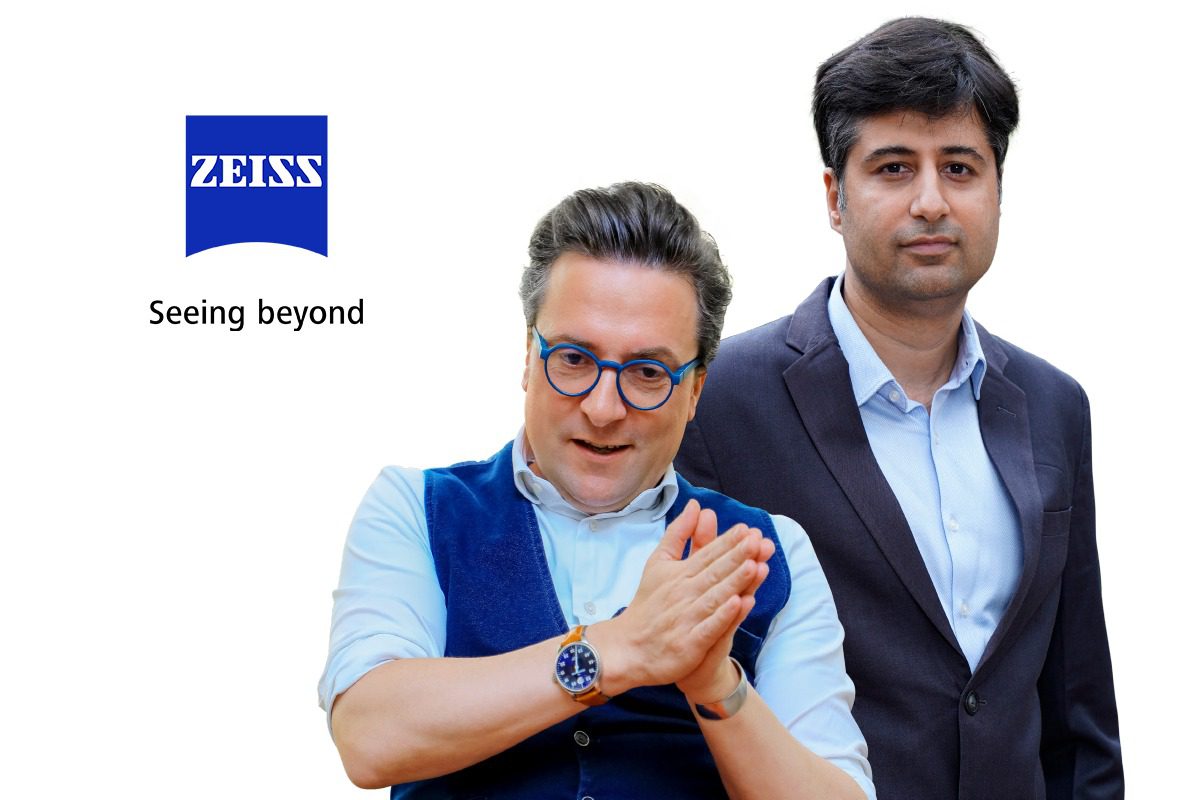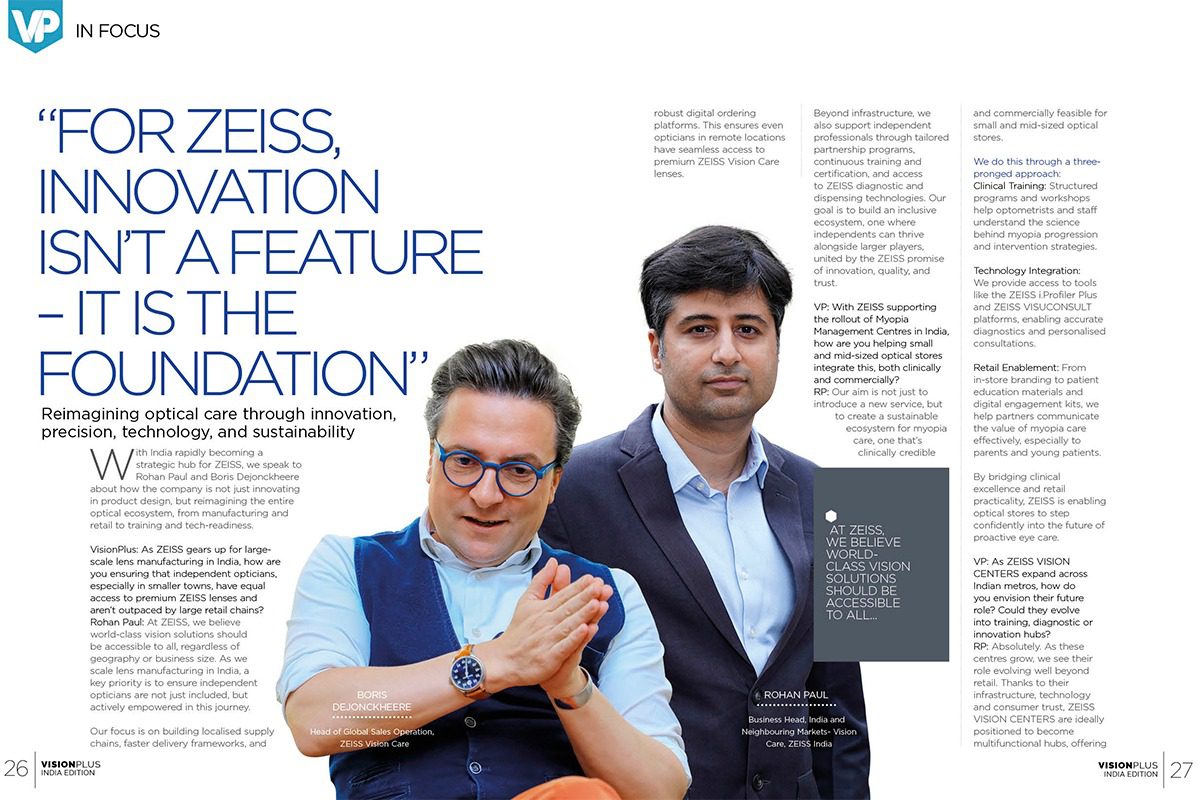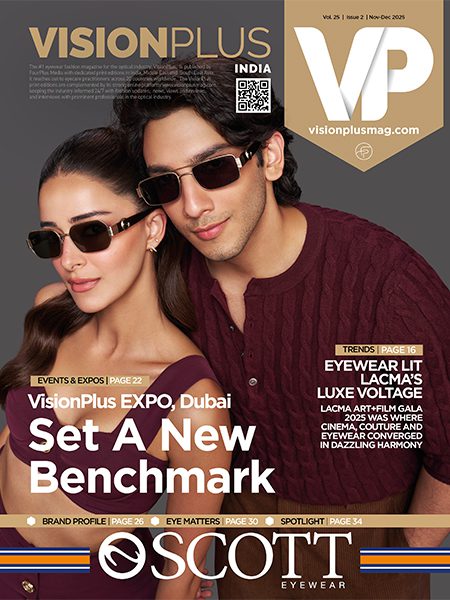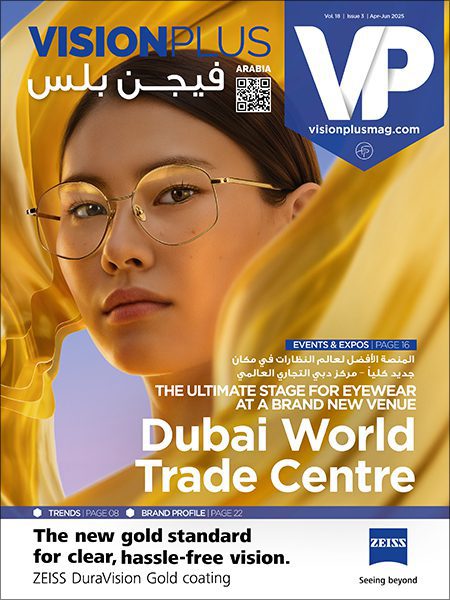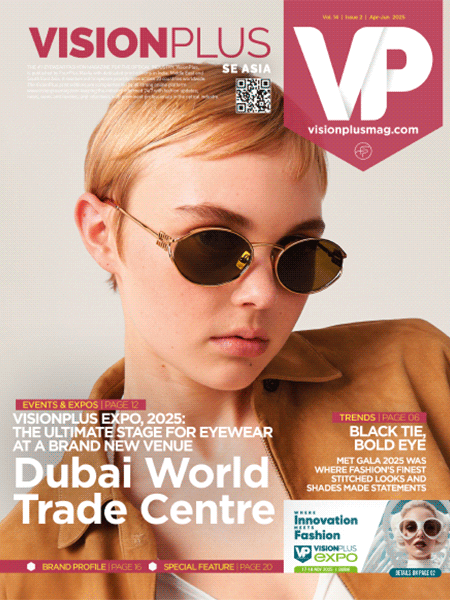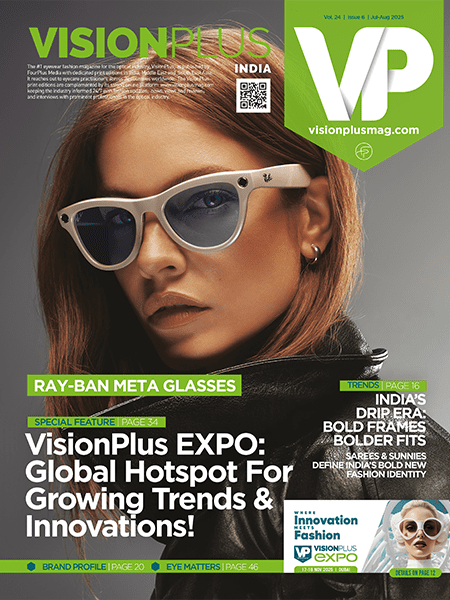
“For ZEISS, Innovation Isn’t A Feature – It Is The Foundation”
Reimagining optical care through innovation, precision, technology, and sustainability
With India rapidly becoming a strategic hub for ZEISS, we speak to Rohan Paul and Boris Dejonckheere about how the company is not just innovating in product design, but reimagining the entire optical ecosystem, from manufacturing and retail to training and tech-readiness.
VisionPlus: As ZEISS gears up for large-scale lens manufacturing in India, how are you ensuring that independent opticians, especially in smaller towns, have equal access to premium ZEISS lenses and aren’t outpaced by large retail chains?
Rohan Paul: At ZEISS, we believe world-class vision solutions should be accessible to all, regardless of geography or business size. As we scale lens manufacturing in India, a key priority is to ensure independent opticians are not just included, but actively empowered in this journey.
Our focus is on building localised supply chains, faster delivery frameworks, and robust digital ordering platforms. This ensures even opticians in remote locations have seamless access to premium ZEISS Vision Care lenses.
Beyond infrastructure, we also support independent professionals through tailored partnership programs, continuous training and certification, and access to ZEISS diagnostic and dispensing technologies. Our goal is to build an inclusive ecosystem, one where independents can thrive alongside larger players, united by the ZEISS promise of innovation, quality, and trust.
VP: With ZEISS supporting the rollout of Myopia Management Centres in India, how are you helping small and mid-sized optical stores integrate this, both clinically and commercially?
RP: Our aim is not just to introduce a new service, but to create a sustainable ecosystem for myopia care, one that’s clinically credible and commercially feasible for small and mid-sized optical stores.
We do this through a three-pronged approach:
- Clinical Training: Structured programs and workshops help optometrists and staff understand the science behind myopia progression and intervention strategies.
- Technology Integration: We provide access to tools like the ZEISS i.Profiler Plus and ZEISS VISUCONSULT platforms, enabling accurate diagnostics and personalised consultations.
- Retail Enablement: From in-store branding to patient education materials and digital engagement kits, we help partners communicate the value of myopia care effectively, especially to parents and young patients.
By bridging clinical excellence and retail practicality, ZEISS is enabling optical stores to step confidently into the future of proactive eye care.
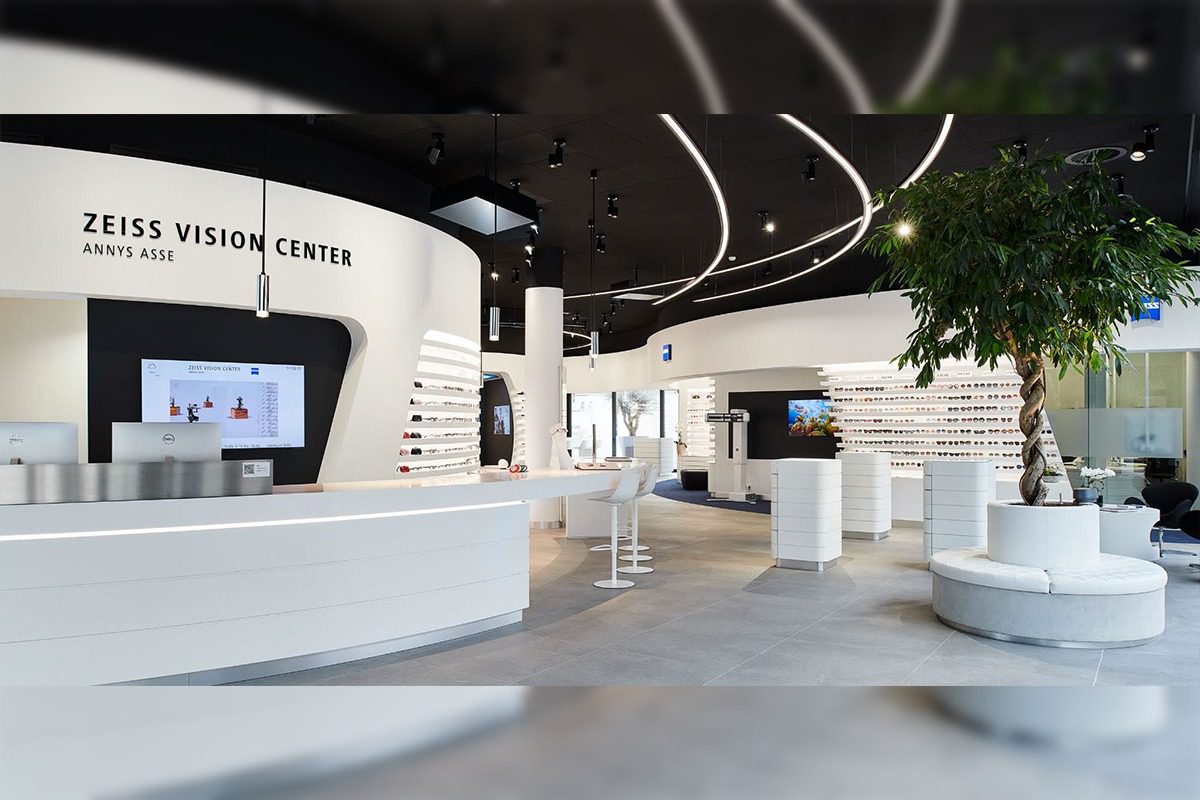 VP: As ZEISS VISION CENTERS expand across Indian metros, how do you envision their future role? Could they evolve into training, diagnostic or innovation hubs?
VP: As ZEISS VISION CENTERS expand across Indian metros, how do you envision their future role? Could they evolve into training, diagnostic or innovation hubs?
RP: Absolutely. As these centres grow, we see their role evolving well beyond retail. Thanks to their infrastructure, technology and consumer trust, ZEISS VISION CENTERS are ideally positioned to become multifunctional hubs, offering advanced diagnostics and potentially acting as local centres for skill development and clinical excellence.
We envision a connected ecosystem, where these centres not only deliver personalised eye care but also promote knowledge sharing, upskilling, and innovation across India’s optical community.
VP: Sustainability is a ZEISS priority. How are you enabling Indian optical retailers to adopt small but meaningful green practices?
RP: Sustainability is central to ZEISS, especially as a foundation-owned company. ESG principles are deeply embedded in our global operations—whether it’s reducing emissions, promoting circular economies, or contributing to the UN Sustainable Development Goals.
Some examples: our lenses now require significantly less water to produce, and many of our facilities are green-certified with energy-efficient infrastructure.
In India, we’re observing growing interest from retailers wanting to go green. While ZEISS currently leads with sustainability at the manufacturing level, we are actively exploring ways to help partners adopt greener practices—like energy-efficient instruments, biodegradable packaging, and even recycling programs.
By sharing best practices and building awareness, we aim to support the optical community in taking actionable steps toward a more sustainable future.
VP: As ZEISS expands in India and other emerging markets, how do local innovations influence global product strategies? Any example where a local idea was scaled globally?
Boris Dejonckheere: Local insights increasingly shape global strategy. Emerging markets like India offer unique challenges—accessibility, affordability, user behaviour—that inspire scalable solutions.
For example, a solution developed for high-volume optical practices in India or a digital tool for independent opticians in Tier 2 and Tier 3 towns often has global relevance. Such innovations provide credible data and insights that influence our global roadmap.
This two-way innovation—from local to global and vice versa- ensures ZEISS stays relevant and responsive across diverse markets.
VP: Are ZEISS sales operations adopting new KPIs—like clinical outcomes, myopia care conversions, or sustainability metrics—beyond just unit sales?
BD: Yes, absolutely. While unit sales are still important, we’re seeing a clear shift in how success is measured.
At ZEISS, qualitative engagement is gaining importance. Using platforms like Showpad integrated with Salesforce, we track the kind of information opticians and optometrists are interested in. This helps us identify gaps, tailor support, and drive deeper, more meaningful conversations.
One emerging KPI is retail benchmarking—giving opticians data on how they compare with peers in areas like product mix, adoption rates, or returns. It empowers them to make data-driven improvements and boost profitability.
On the sustainability front, we’re seeing traction around remote edging. The more lens edging we perform in-house using dry edgers, the more sustainable the entire process becomes—reducing water use, waste, and emissions.
So yes, the focus is shifting from just “how much we sell” to “how well we enable outcomes”—clinical, retail, and environmental.
VP: What is ZEISS doing globally to help optical stores move beyond e-commerce into intelligent digital retail?
BD: We believe innovation should drive meaningful outcomes. ZEISS Bridge AI—our internal generative AI platform—is a great example. It’s trained across divisions and is already helping us create custom training tools, personalised lens recommendations, and even internal content like podcasts to boost staff productivity.
While it’s currently used internally, we’re gearing up to make these tools available to optical practices worldwide.
We were also early adopters of AI-powered virtual try-ons—a feature that’s finally seeing broad adoption. From smart engagement tools to AI-driven product recommendations, we’re helping practices transition from basic online selling to connected, intelligent retail.
For ZEISS, innovation isn’t a feature – it is the foundation!
VP: You’ve travelled widely. What’s one quirky or unexpected thing you’ve discovered about India’s optical community?
BD: What truly surprised—and delighted—me is the incredible entrepreneurial spirit of India’s optical community, grounded in strong, personal relationships. In many countries, business is transactional. But in India, opticians are often multigenerational advisors—serving entire families, and doing so with trust and warmth.
Also impressive is how quickly this community adopts innovation—whether it's advanced ZEISS technology or store upgrades for better customer experience—all while retaining their local character. That blend of tradition and agility is uniquely Indian and incredibly inspiring.

